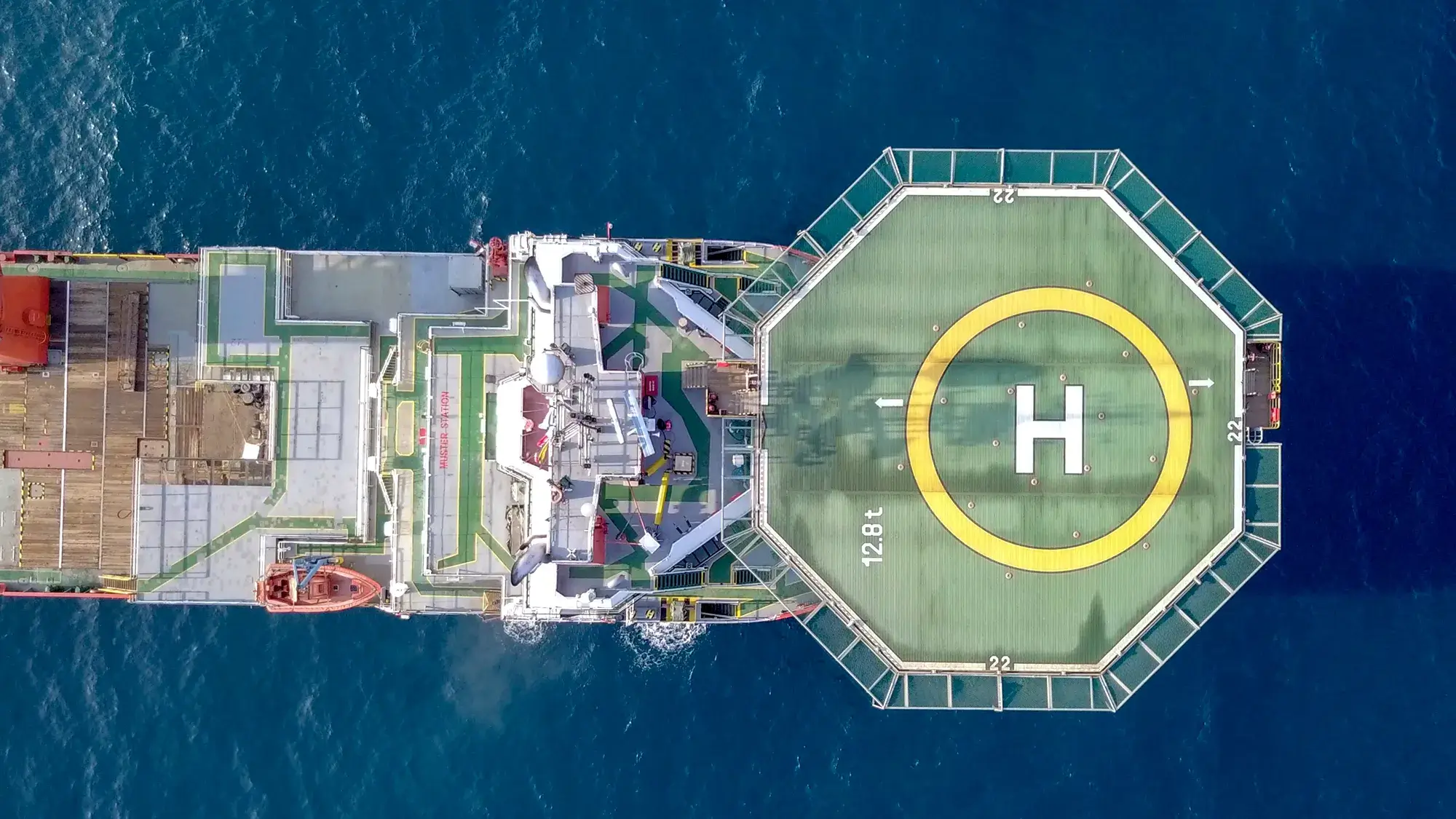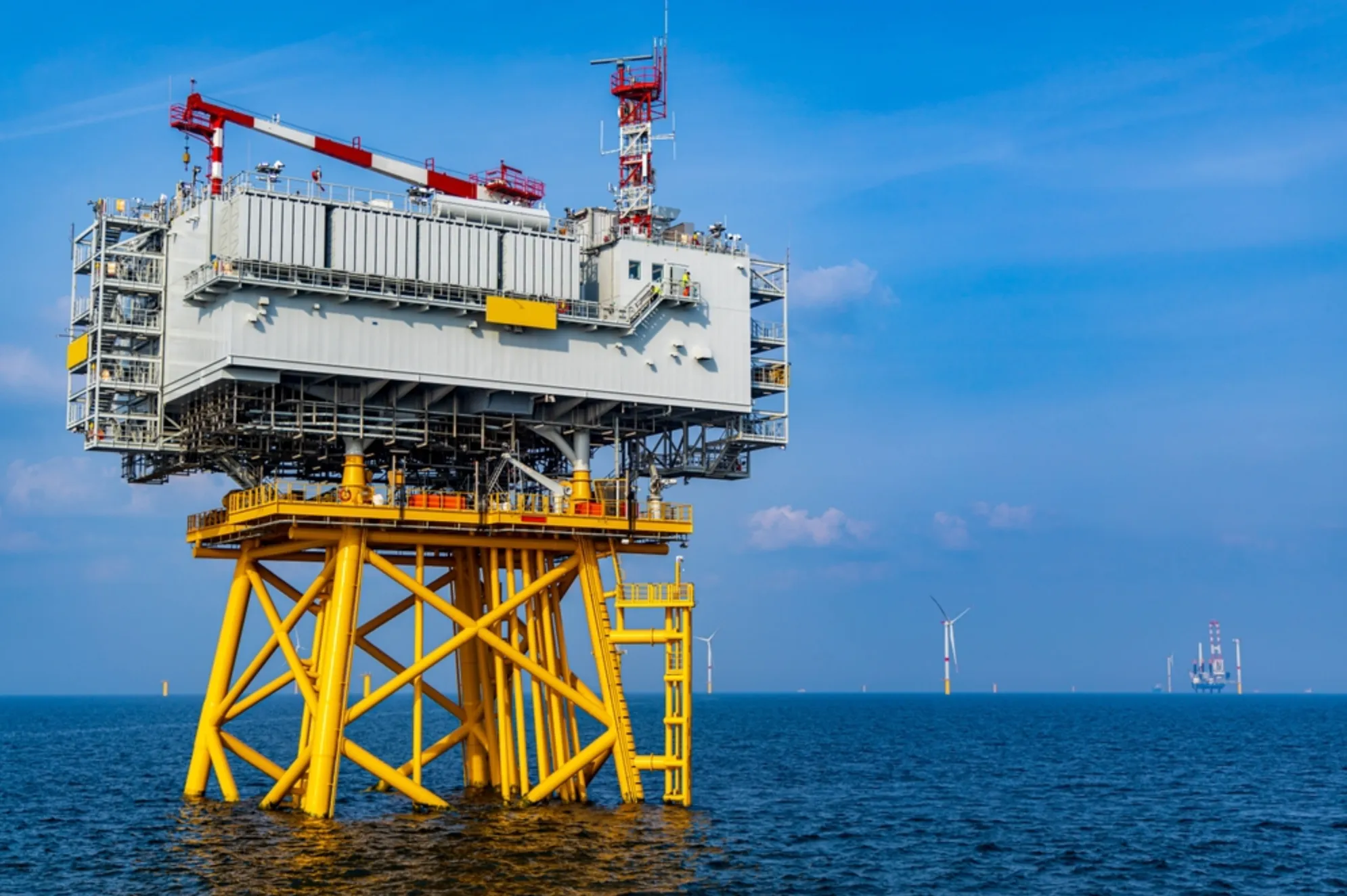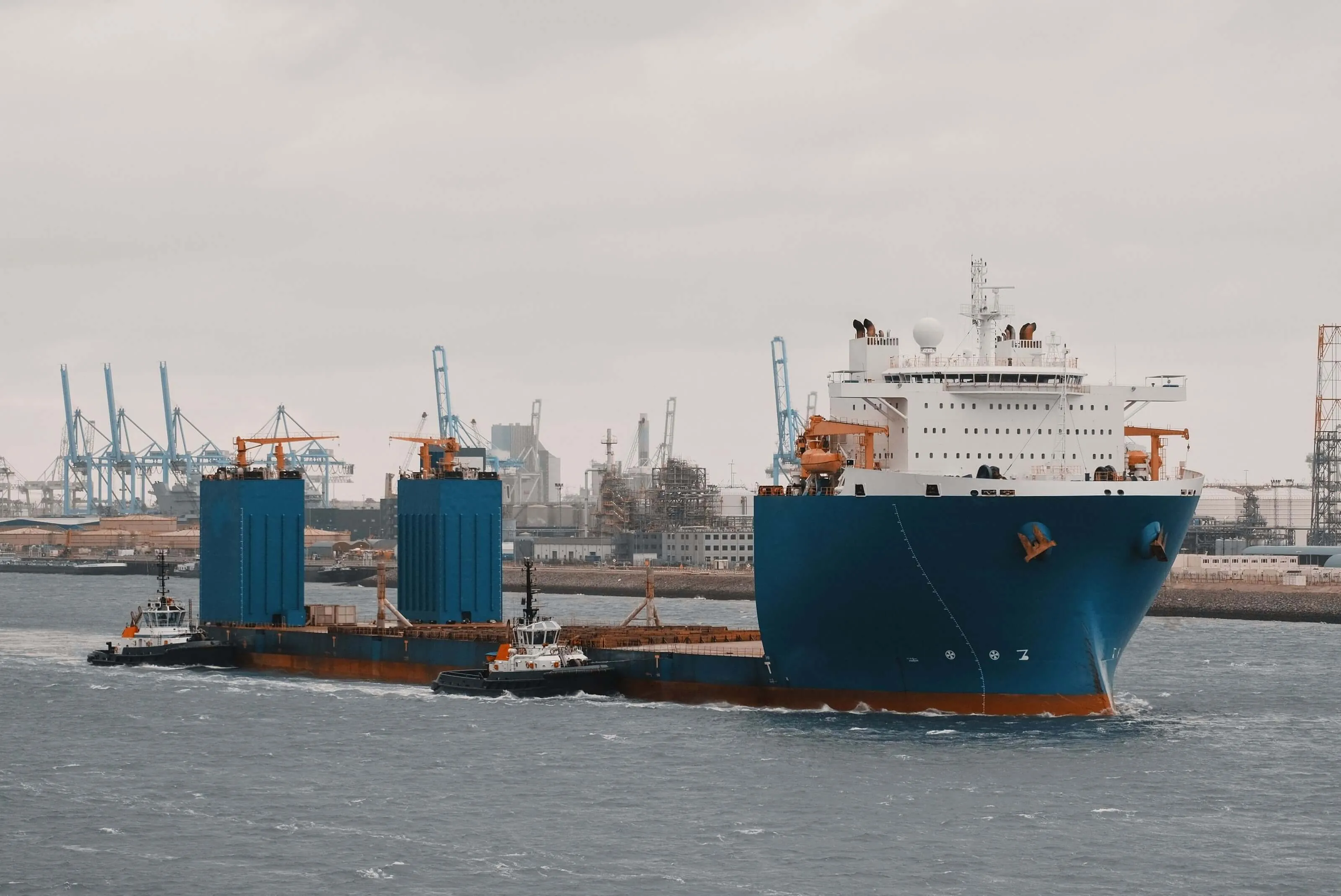Spinergie successfully deployed Smart Fleet Management (SFM) for a prominent operator in West Africa to track, manage and coordinate a fleet of Platform Supply Vessels (PSVs), Fast Support Intervention Vessels (FSIVs) and Surfers. The fleet is used in the supply of personnel and equipment to offshore platforms, FPSOs and floatels on a number of oil fields operated by the client.
The Oil & Gas operator’s West African fleet comprises three PSVs, four FSIVs and 12 Surfers. The client chose to utilize Spinergie’s expertise in the digitalization of maritime operations to track, manage and coordinate its operations efficiently.
Context
The client operates multiple oil fields in West Africa which include assets such as platforms and FPSOs. These assets need to be regularly supplied with equipment and consumables sent from shore, manned by personnel transferred either from shore or from floatels and, finally, supervised by FSIVs who need to stay within a pre-defined radius at all times.
These operations pose a number of challenges:
Lack of live actionable data: The client had limited access to live data from these vessels which reduced their ability to track and manage operations efficiently. It also resulted in a lack of coordination between vessels, assets and ports, leading to avoidable waiting times for vessels and FSIVs sailing outside of the safety radius.
Piracy: This is a non-neglectable risk in West Africa which represents a threat to personnel and assets. The poor AIS signal coverage in the area makes it challenging to establish a safety perimeter around the zone of operations.
Assets surveillance: FSIV activity coordination is especially difficult as it needs to combine supply activities with the constraints of surveillance activities. The lack of an AIS signal and the difficulty to coordinate operations makes it difficult to ensure that an FSIV always remains within a predetermined safety radius.
Fuel Consumption: Lack of sufficient data meant the client could not measure and compare its vessels' fuel efficiency.
Spinergie’s Smart Fleet Management Solution
Spinergie's SFM tool is built to track, coordinate and optimize offshore operations. SFM relies on a combination of algorithmic interpretation of vessels’ AIS signal in relation to geo-fenced locations, as well as vessel data such as Daily Reports and sensor data.
Live Operations tracking
Vessel AIS (Automatic Identification System) data is embedded on an interactive map dashboard displaying relevant geo-fenced data (e.g., port, channel, operations and mooring areas, platforms, FPSOs, etc.). This enables users to access live updates of vessel positions, enriched with both Daily Reports (DRs) and onboard and offshore sensor data without making phone or VHF calls.

The client can also configure custom alerts to be instantly notified upon the occurrence of any event or vessel activity (vessel leaving site, ETA notification, high fuel consumption, intrusion of foreign vessels, no FSIV in radius, etc.). This enables stakeholders to take reactive decisions when operations are not performing as expected and, in the end, reduce delays and demurrage.
Smart Reporting with Digital DRs
Digital Daily Reports are designed to help vessel managers standardise and centralise operational data. The user accesses a pre-designed form where user input is guided through automatic field population, error warnings and data quality checks. This significantly increases reporting consistency, while reducing manual reporting hours.
Key Performance Indicators (KPIs) for efficiency optimization
Data collected from vessel AIS, digital DRs, fuel sensors, and weather parameters are compiled together to generate KPIs. These performance indicators include:
- Asset visits and distance travelled: the number of asset visits and time spent per asset can be analyzed over time. The distance travelled by vessel per asset visit can also be calculated to measure the efficiency of rotations.
- Cargo and Pax transfers: track cargo and Pax transfers per project or asset over time. This is done seamlessly with a user-friendly interface.
- Time allocation per project or asset: vessel activity can be analyzed to measure the time spent per project or asset for accurate cost and time allocation breakdowns.
- Vessel activity breakdown: DRs can be analyzed to better understand and reduce the most commonly observed causes for delays. This helps stakeholders identify possible areas of improvement to achieve better operational efficiency.
- Benchmark fuel consumption: fuel sensor data is analysed into a dynamic dashboard, helping the client benchmark the fuel consumption of its fleet and gain an understanding of the consumption trends of their operations.

Advanced environmental KPIs
Using state-of-the-art modelling and development, SFM offers two major tools that can help vessel managers
- Calculate Carbon Intensity Indicator (CII) for any fleet: adapted from existing IMO and IMCA regulations, and developed together with some leading vessel managers in the world, Spinergie's CII goes further in assessing carbon intensity by accounting for each vessel's activities and specs.
- Model and forecast fuel consumption and emission behaviour: This will help managers take proactive action by forecasting any vessel's emissions across different scenarios, understanding the impact of upgrades and more.
Result
It was vital for the client to be able to track, manage and coordinate its activities efficiently, especially with the additional challenges posed by location and vessel constraints. Spinergie’s Smart Fleet Management solution enabled the client to access a user-friendly platform which immediately synchronized tracking of its fleet activities. The solution provided the client with actionable insights which not only helped fleet organization but also increased efficiency and reduced emissions.
Our team will show you exactly how we can adapt the solution to your needs.




.webp)

